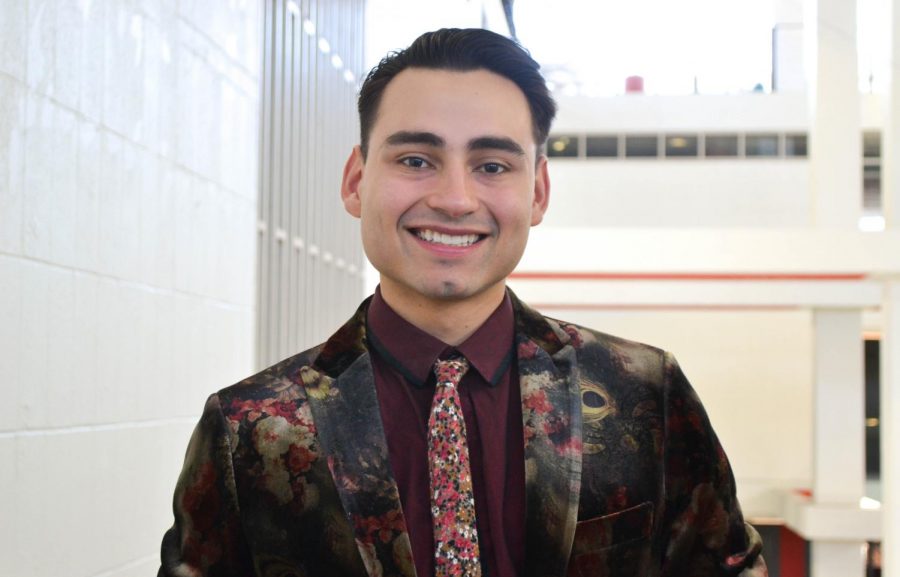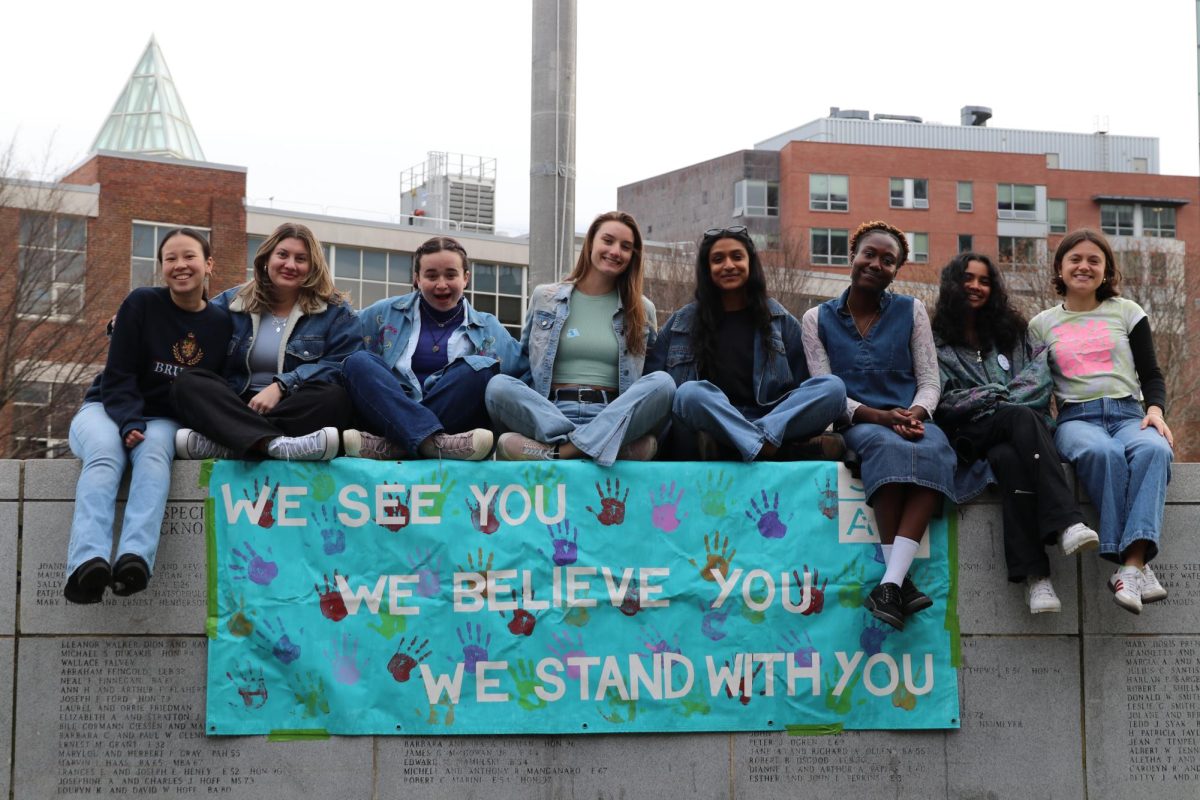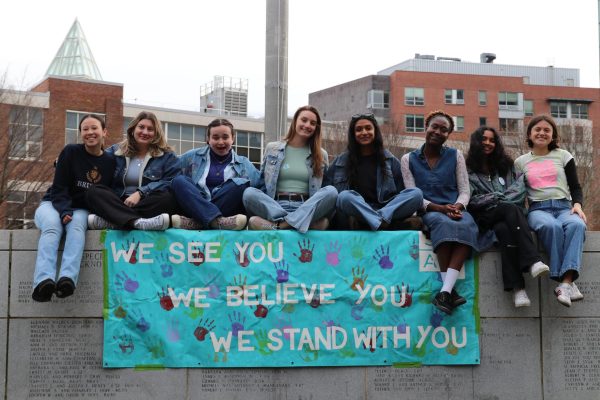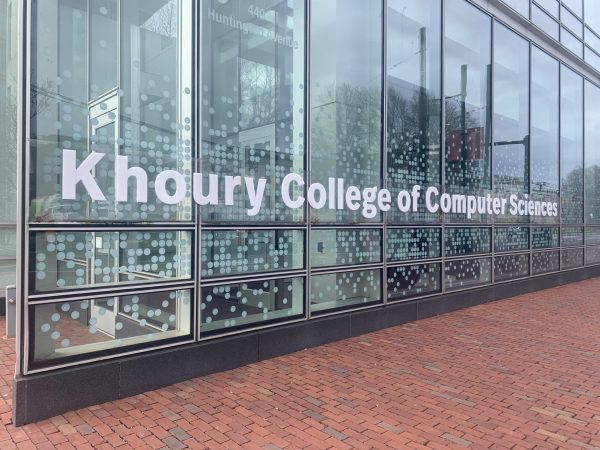After ankle injury, NU student starts video company to help other student athletes
First-year business student Lucas Espada turned to helping others through the college athletics recruitment process after an injury prevented him from playing Division I soccer.
March 1, 2019
As college acceptance rates at schools like Northeastern drop, for many students the path to college lies in not just academic achievement, but athletic ability. This is where Lucas Espada, a first-year business student, found himself last year.
“All throughout high school, I was trying to get recruited to Division I,” Espada said. “I started the process senior year, but it’s tough. As I was trying to market my skills sending highlight videos, I was getting no responses. I did some research, found that college coaches get around 2,500 emails a day — and figured I needed to rise above the noise. I started mixing soundtracks from my favorite movies and syncing the climax of the songs with my highlight videos.”
Espada’s approach and dedication allowed him to rise above that noise and he was recruited to play soccer as a goalie for Harvard — until an unexpected injury senior year. For most people, a severe ankle injury is enough to cause serious pain. For a high school athlete getting recruited to Harvard on athletics, it can feel like the end of the world.
“For a while, I was wondering why I went through all this. The rejection honestly hurt a lot,” Espada said.
He’s channeled his collegiate athletics ambition a different way. Espada’s startup, CAPTIV, uses his unique approach to recruitment videos in order to help other high school athletes capture the attention of recruiters.
“CAPTIV is an entertainment company based on the spread of passion,” Espada said. “We currently specialize in highlight videos for collegiate athletes. At our core, we spread passion. We paint stories rather than just talent.”
After starting CAPTIV, Espada, who attended Northeastern instead of Harvard, discovered Husky Startup, a semester-long business pitch competition at the university.
“You go through a series of boot camps taking this concept from an idea to launch,” Espada said. “Eventually, during demo day the top 12 ventures got to pitch live at the Curry Ballroom. I got to pitch CAPTIV live on the day as a finalist in front of 500 people.”
Husky Startup allowed Espada to create and refine his vision for the new startup. After the pitch, CAPTIV grew from a small startup run just by Espada to a five-person crew.
“I learned Lucas was running CAPTIV through the Husky Startup Challenge,” said Joe Chou, a first-year business major and chief operating officer of CAPTIV. “After talking to him about the company I knew it was something I wanted to do. My passion for both the sports and the business aspect meant I knew I could help.”
Chou isn’t the only CAPTIV member inspired by the intersection of sports and business. Max Geott, a first-year business major and chief administrative officer of CAPTIV, felt similarly. He and Espada met through on-campus clubs, and when Geott heard of CAPTIV he knew he had to join.
“I tried to run a bunch of sports pages in high school, and I saw the process kids were going through to be recruited,” Geott said. “Once I got here I was wondering — what’s a world where I can combine the analytical things I want to do while being involved in my passion, which is sports.”
Espada is driven by the project and willing to go as far as this journey takes him.
“This is something that combines every aspect of what I love to do,” Espada said. “It’s creating something new, and it’s doing it while having fun. I could absolutely see myself doing CAPTIV 10 years from now, taking it into new markets. I’m an entrepreneurship major — this is what I do.”
So far, CAPTIV’s number of clients only ranges in the double digits – but Chou is confident in the future of the company.
“When you start a startup you have to believe in your own company — otherwise what is the point of starting it?” Chou said. “You have to be able to go all in.”
Geott shares similar aspirations and emphasizes how thinking for the future is part of CAPTIV’s strategy.
“One of the big things we did at the start of the year was thinking big,” Geott said. “Everyone was thinking huge — media conglomerates, highlight videos, music videos. We have to act small now because that’s how we plan to get attention locally. But in 10 years? I’m excited.”


















